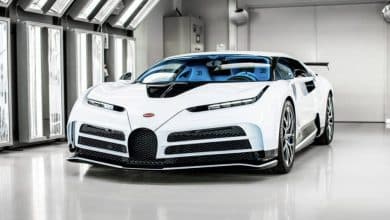Euro 7 standards: Europe is moving backwards, some manufacturers are taking advantage

The most recents Euro 7 anti-pollution standards that the European Union has just presented did not please everyone. Some automobile manufacturers, including Stellantis, Volkswagen and Skoda have hit back at the new regulations and called them too restrictive and, in some cases, even unnecessary.
These manufacturers demonstrated that several models should be removed from their range, while others will have no choice but to increase prices in order to continue to market thermal vehicles. In the eyes of many, the Euro 7 standard would have a huge impact on the European automobile industry, to the point of seriously jeopardizing certain factories and even certain manufacturers.
According to Sigrid de Vries, director of the Association of European Automobile Manufacturers (ACEA), the new Euro 7 standard would impose very high expenses on an industry already in full transformation. “Production costs will rise, which will have a direct effect on consumers who already have to deal with high inflation. »

The European Union is moving backwards
L’ACEA therefore took the decision not to impose the Euro 7 standard on the light transport sector, i.e. cars, SUVs and vans. At least, not right away. The European automotive industry will therefore be able to continue operating under the Euro 6 standard. However, the entire heavy transport sector will have to comply with Euro 7.
However, the ACEA has not yet confirmed the broad outlines of this decline, nor when it finally intends to impose Euro 7 on light transport. All we know is that the auto industry is entitled to a moment of respite while it repositions itself in the face of a changing economy.
Some manufacturers see it as a business opportunity
Obviously, such a decline comes with its share of perverse effects. Automakers, who are profit-seeking businesses, see this as a business opportunity to preserve the construction of certain lucrative thermal models.
Take the example of Alfa Romeo and its 2.9-liter twin-turbo V6 engine that powers its Quadrifoglio models. If the manufacturer saw the harsh reality of having to withdraw it from the market in view of Euro 7 standards, it could continue to build and market it.

Our opinion
What you have just read represents the kind of dilemma governments face when it comes to climate change. On the one hand, they must make unpopular decisions in order to reduce GHG emissions (greenhouse gases) and stimulate the development of renewable energies. On the other hand, they must protect the manufacturing sector, one of the pillars of a country’s economy, and ensure that consumers’ purchasing power is preserved. Not easy.
Indeed, the European Union’s retreat from Euro 7 standards will undoubtedly buy its economy more time, but personally, I see it more as whining coming from car manufacturers who have lacked vision. Because manufacturers already equipped for electrification, like Tesla and certain Chinese brands, like BYD, are not complaining about Euro 7. And when I hear Alfa Romeo rejoicing at the fact that it will be able to continue building its twin-turbo V6 — an engine which, let’s face it, is staggeringly useless — I tell myself that we are not out of the woods.











